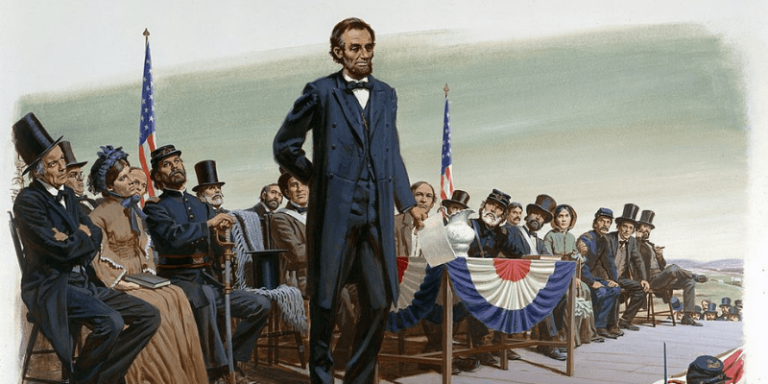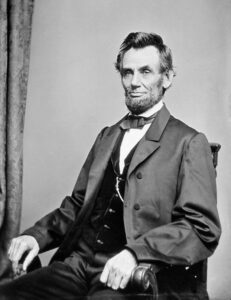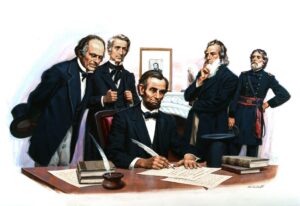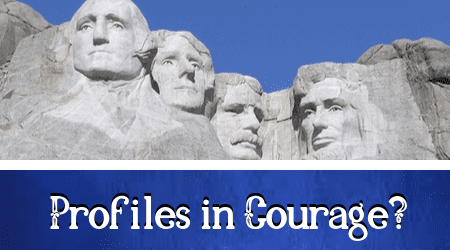Abraham Lincoln: The Great Emancipator
Lincoln issued the Emancipation Proclamation after the victory at the Battle of Antietam.
By: Kelli Ballard | January 31, 2020 | 433 Words

Gettysburg Address (Illustration by Ed Vebell/Getty Images)
Perhaps one of the most famous of all presidents is the 16th, Abraham Lincoln (1809–1865). Known by such nicknames as Honest Abe, the Great Emancipator, and the Rail-Splitter, Lincoln’s presidency helped reshape the nation.

Abraham Lincoln (Photo by US National Archives/Getty Images)
Lincoln was born on Feb. 12, 1809 in a three-bedroom cabin near Hodgenville, Kentucky. For a while, Lincoln co-owned a general store before selling his portion and enlisting as a militia captain to defend Illinois from the Native American tribal wars. He participated in the Black Hawk War of 1832. Demonstrating the type of presidential character he would have, Lincoln challenged his men to combat after they attempted to shoot a wandering Native American whom they thought was a spy. His men lowered their muskets.
A former Whig, Lincoln joined the new Republican Party in 1849. Stephen A. Douglas sponsored the 1854 Kansas-Nebraska Act, which allowed slavery in some states and was the genesis of Lincoln’s rise to the White House.
Lincoln won the Nov. 6, 1860 election without the support from a single Southern state. Almost immediately afterward, several states seceded from the Union. Although he was against slavery, the true meaning behind what led to the Civil War was Lincoln’s strong belief against secession. During his first inaugural address he appealed to the rebel states saying, “Shall it be peace, or the sword?”

A painting depicting President Abraham Lincoln signing The Emancipation Proclamation. (Illustration by Ed Vebell/Getty Images)
The firing upon Fort Sumter in South Carolina on April 12, 1861 was the beginning of the war. It was a long and bloody fight that took thousands of lives. On Jan. 1, 1863, Lincoln issued the Emancipation Proclamation after the victory at the Battle of Antietam.
On March 4, 1865, Lincoln performed his second inauguration speech after winning reelection to the White House. He had one goal, he said, and that was “lasting peace among ourselves.” He asked all to have “malice towards none” and “charity for all.”
One month later, General Robert E. Lee surrendered his Confederate Army to Ulysses S. Grant at the Appomattox Courthouse, finally ending the war – and slavery.

The Lincoln administration wasn’t just about the Civil War. The first income tax, the Revenue Act of 1862, was established. Also in 1862, the Homestead Act was passed, which offered settlers 160 acres of free land to travel and homestead in the West.
On April 14, 1865, Lincoln attended a performance at Ford’s Theatre in Washington. A Southern sympathizer who thought he would somehow help the lost cause, John Wilkes Booth, assassinated Abraham Lincoln.
















